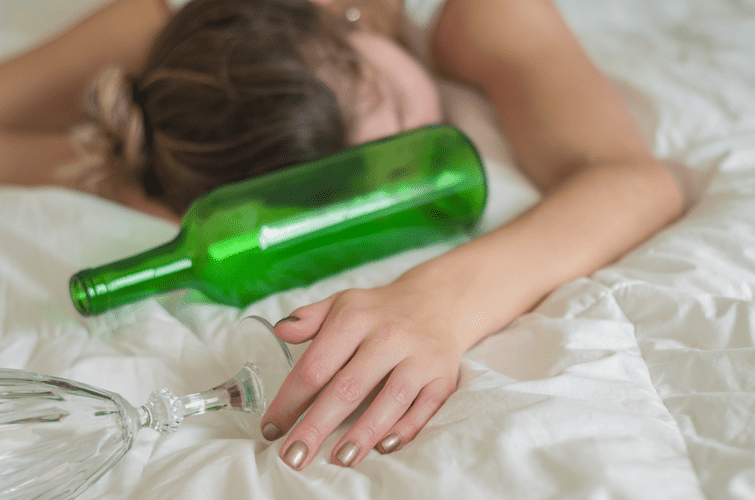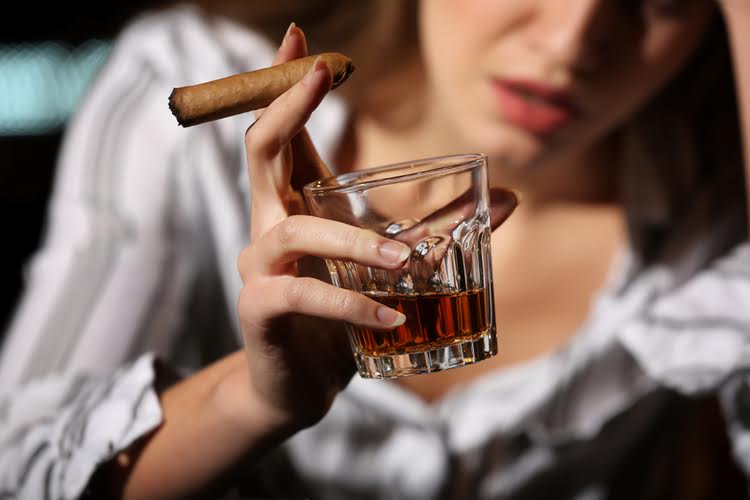Contents

Julia Aharonov, DO, reveals the quickest way to beat drug withdrawal. I’m taking a strong laxative called lactulose for it. It’s not necessarily cirrhosis it could just be heavy damage to your liver. Too much ammonia in your system from a damaged liver can cause brain death. I am now in situation where I am lightheaded even after non-alcoholic beer which has only 0,5 percent of alcohol. I am also lightheaded after smoking tobacco, also after smoking electronic cigarette.


This means you will feel less of alcohol’s perceived benefits over time, causing you to drink more. While drinking helps some people forget their problems or numb their emotions, it triggers negative emotions in others. Contrary to popular belief, alcohol is a depressant — not a stimulant. Alcohol’s stimulant-like effects only appear when you start drinking. Ketamine has been explored as a treatment for depression and other conditions.
I was thinking that I was just hungover and the feeling would go away after laying down. I couldn’t even take a sip of a beer because it would make the dizziness worse. Driving, walking and pretty much anything that involved me moving, caused me to get super dizzy. It got to a point where I didn’t even want to leave the house because it was just uncomfortable.
Alcohol, the Inner Ear and Vertigo
When people with severe alcoholism stop drinking, they usually go through a detox. Yo i’m like 5 months in now, i’ve had like what everyone has been describing. Having it more difficult lifting weights now, feeling very dizzy sometimes which i didn’t before. Many times it feels like i’m not really present and my vision isn’t that clear. Difficult reading text on the computer and watching sudden camera moves or scrolling fast makes me get nasua. My eye doctor said my pupils was larger than normal people so might be something to do with my brain, gonna go check it in a month or so maybe.

The circadian rhythm is how your body knows when to be awake and when to be asleep, and it’s one reason why so many experts recommend going to bed and waking up at the same time every day. Having a sleep routine helps keep your circadian rhythm working well and keeps sleep issues at bay. However, one of the major effects that alcohol has on the body is disrupting that rhythm. Alcohol may help you fall asleep, but once you move to sobriety, you start to feel the effects of that interrupted circadian rhythm. This can lead to difficulties falling and staying asleep and may cause insomnia, which can leave you dealing with extreme fatigue during the day.
Depression After Drinking
Buddy T is an anonymous writer and founding member of the Online Al-Anon Outreach Committee with decades of experience writing about alcoholism. Having close relatives with a history of alcoholism may suggest an inherited problem with the way your body processes alcohol. Alcohol can make you sleepy, but it prevents deeper stages of sleep and often causes awakening in the middle of the night. Symptoms of dehydration are headaches, dizziness, and a dry mouth. Alcohol intolerance occurs when your body doesn’t have the proper enzymes to break down the toxins in alcohol. This is caused by inherited traits most often found in Asians.
- Alcohol triggers an inflammatory response from your immune system.
- Mild symptoms may appear similar to a hangover, but they last longer than 24 hours.
- After the initial rush, alcohol decreases central nervous system activity.
- Over time, your body becomes accustomed to functioning with less fluid and your neurons can compensate for the altered signals sent by your inner ear.
For some people, your anxiety actually comes before alcohol. About 3.1% of the U.S. population is affected bygeneralized anxiety disorder, according to the Anxiety & Depression Association of America. If you’re feeling nervous about being in a social setting, you may pour yourself a glass of wine to self-regulate any stress. When you drink, do you couple this with eating pretzels, pizza or sweets? We tend to pair up our vices, and not only drink alcohol but also eat highly dense, problematic foods.
It is important to know that alcohol intolerance can lead to a drop in blood pressure, which can bring on a feeling of faintness or dizziness. Dr. Joseph Volpicelli M.D., head of Volpicelli Addiction Center, tells Bustle that this is normally a pretty severe reaction, and shouldn’t happen if you just have a mild intolerance. While nobody feels great after having one too many drinks, somebody with an alcohol intolerance may feel sick right away. „The first sign of alcohol intolerance is usually the general feeling of malaise and discomfort or not feeling well from as little as one drink,” Mansour says. This symptom alone can make drinking unappealing, and you may want to talk to your doctor if it keeps happening.
Those with existing heart conditions will also need to be careful before you drink alcohol in case alcohol intolerance could exacerbate their pre-existing conditions. Heavy, long-term alcohol use takes a toll on the liver, and liver damage is one of the most common long-term effects of alcoholism. Liver damage can make it harder for your body to get on regular sleep-wake cycles and can leave you with the same insomnia and fatigue issues as stated above.
What illnesses can be triggered by alcohol consumption?
Another 2012 study proved that a mixture of prickly pear and borage oil decreased symptoms of hangover sickness in 88% of patients. With such severe side effects, your hangover will definitely feel much longer than it actually is. Either way, if your hangover lasts for 3 days with no intention of going down, you’ll definitely need medical assistance in finding relief.
Moderate amounts are very healthy, but too much can have devastating effects. Withdrawal is different for everyone; there really is no „normal” and it can be hard to predict an individual person’s experience. If you or a loved one has symptoms of DT, seek immediate emergency medical care. Mild symptoms may appear similar to a hangover, but they last longer than 24 hours.

For instance, a study in 2014 found that roughly 15 percent of heavy drinkers experienced daytime sleepiness. How much you need to drink to cause a hangover depends on many factors. Some people may only need one or two drinks to get drunk and feel hungover the next day. Others can drink far more and feel minimal symptoms afterwards.
An alcoholic binge can cause an electrolyte imbalance, and or dehydration, causing weakness. Severe weakness, hypotension and even death can occur. A single episode of binge drinking is unlikely to permanently cause liver damage, particularly as you are young. The best advice is to abstain or drink in moderation. If you happen to do it again buy a couple of bottles of generic pedialyte and you may feel remarkably better within hours. Don’t use sports drinks like gatorade unless you absolutely cannot get pedialyte.
Learn how meditation, yoga, and other therapies can support your primary treatment. Do you know someone who has an alcohol addiction? Find out how you can help and be a positive influence in their journey to be alcohol-free.
After a lot of research I think the football thing is jUst gerd caused by the alcohol so i take anti acids. For a few years now my liver enzymes been 3 times higher than normal so i tell my self maybe the odd dizzyness is from that or maybe toxins built up over days of binge drinking. Once i get hyderated whidh takes normaly a day or so and adter that i get very bad direa my guess is its my body detoxing. I also gain around 10 pounds from my body storing water, then over a weeks span being sober the water weight comes off. Your blood sugar can go low to so keep juice in your home and eat carbs like pasta before you go to sleep to keep ur sugar from going low.
Notice that when you stop spinning, you have the sensation that the room keeps spinning around you. This effect happens because you are getting two different sensory inputs from the left and right side of your body. At Healthfully, we strive to deliver objective content that is accurate and up-to-date. Our team periodically reviews articles in order to ensure content quality. The sources cited below consist of evidence from peer-reviewed journals, prominent medical organizations, academic associations, and government data.
Once I get into a panic attack I get all sweaty and worse. This is such an awful feeling and looking on to manage this. Sometimes sitting or lying down for a while and then standing up makes it worse momentarily. I don’t call it vertigo or dizziness because I don’t feel like I’ll fall over or the room is spinning. How many days are you drinking for before you have those two days without drinking? It is certainly not a side effect of NOT drinking but could be due to withdrawal from alcohol.
For some present value of a single amount, this may require inpatient rehab. Others may be able to stop drinking with outpatient therapy or social support. Hangovers are a common side effect of alcohol consumption. Here are 6 hangover cures and ways to prevent a hangover. The heavier you are, the longer it may take for you to feel the effects of alcohol. This is because you have more body volume through which alcohol can diffuse.
Avoiding alcohol and improving your diet can sometimes lead to a moderate to full recovery. Drinking can also affect your mood if you already have a mental health condition or use alcohol as a coping mechanism for your mental health. A 2017 study found that many people report feeling more aggressive or even feeling an overwhelming amount of emotions when they drink, especially if they had some dependence on alcohol. The next day after a consuming a few drinks, we don’t usually look our best. This is because alcohol causes bloating and inflammation in the body, which can lead to red eyes or a puffy face.